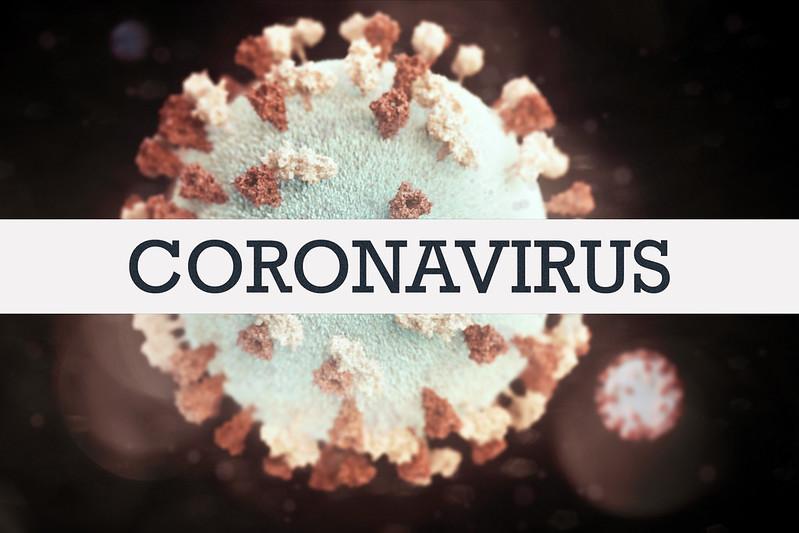The Coronavirus pandemic has struck areas of the world in different ways and there is still a lot of mystery surrounding how the virus affects people. The main symptoms still include a high fever, a new, persistent cough and a loss or changed sense of smell and taste which was added to the government official symptoms late in May.

However, there is still mystery of how long these symptoms last, and what COVID-19 actually does to the body. COVID-19 is not the most deadly or contagious virus on earth but it has caused the worst pandemic the world has seen in over a century. With this comes the danger of not knowing the long-lasting effects COVID-19 can have on the body.
The novel disease has ripped through the UK and many argue the UK should have gone into ‘lockdown’ sooner. Having caught coronavirus at the end of March, I am part of the pre-lockdown bunch that caught this disease. Self-isolation was tough and the symptoms were debilitating; being bed bound for 2 days, not being able to stand or stay awake for longer than 2-3 hours for one of these days.
Being 20, I thought my experience of COVID-19 would be very different, and potentially that it would effect me asymptomatically like it was for my 60-year-old father. He was one of the lucky ones, however, as this unpredictable virus had my mother bed bound for 2 weeks.
My experience of the virus began in late March. My mum, Maxine, is a Doctor at a nearby GP surgery in Rotherham and was still seeing patients face-to-face before the 23rd of March. On the Sunday before lockdown began (the 22nd of March, Mother’s Day) we received a phone call from Public Health England, stating that Maxine had been in contact with a patient from a care home that had sadly passed away from COVID-19. This was the beginning of our self-isolation and at this point none of us had symptoms. However, this was soon to change.
My mother came down with an awful cough, fever and fatigue over the coming days and by Wednesday was struggling to do daily tasks such as walking upstairs. Wednesday was also when my experience of the virus began. I started to get the obvious symptoms, having a dry cough, shortness of breath, but overall, I felt fine. I even managed to get a full rowing workout in the day before I was bed bound. In hindsight this was probably not the best idea.
In total, I was bed bound for 2 days. I was tired, anxious, had no appetite, and it felt like someone had placed an elephant on my chest and my head. Everything I did required so much energy that when I got back into bed, I couldn’t physically keep my eyes open. The headache was excruciating and like nothing I had experienced ever before. These symptoms persisted for 2 days.
This virus is truly unpredictable in who it picks and chooses. Unbelievably my experience as an active, fit and healthy 20-year-old, was completely different to my dad’s, a 60-year-old man who would typically be thought of as more ‘at risk.’ His only symptom was, fortunately, loss of smell and taste.
Four months on you would think that the symptoms and side effects would have subsided. They have not, and the new prospect of antibodies depleting weeks after having the virus is a very real and worrying prospect for everyone who has lived through having the disease.
It is very scary knowing members of your family have the virus and having to fully lockdown in our house was a very strange experience which I never want to re-live but know I probably will have to at some point in the very near future.
Knowing first-hand what this virus does to the body and how it adversely effects people it is strange to think that I will be returning to university and interacting with multiple people.
Fatigue, nausea, headaches, breathlessness and a changed sense of smell and taste are a few symptoms that have persisted for me, and 4 months on they show no signs of subsiding.
These “long-haul” symptoms persist way past the 14-day period that officials say is the average length of the virus. Harriet, a student studying Medicine at the University of Lincoln caught the virus at the end of March and her symptoms persisted for just under two weeks. One of her friends Charlotte and their mum Gill are still suffering from “post-viral fatigue” 4 months on.
My life has changed, and for over 4 months now I have been through a roller coaster of ill health, from nausea to breathlessness and headaches to fatigue. It feels like a lifetime away now when Boris Johnson brought the country to a standstill introducing the nationwide lockdown.
Granted, my body went through an experience it will never go through again, but 4 months down the line you would think the recovery process would be over. However, I still feel the side effects of having this awful illness. Even simple tasks such as walking upstairs have become laborious and hard to complete without becoming breathless or fatigued.
As we know and understand, COVID-19 is not just a lung disease. The Sars-CoV-2 coronavirus can infect cells of the respiratory tract and can cause life-threatening side effects including pneumonia.
According to a recent study published in the European Respiratory Journal, around 20% of those infected with COVID-19 require hospitalisation and in 5% of cases, the pneumonia becomes so severe that patients are admitted to intensive care.
It is still early days in this pandemic, and we still have lots to learn and understand about the COVID-19 virus.

